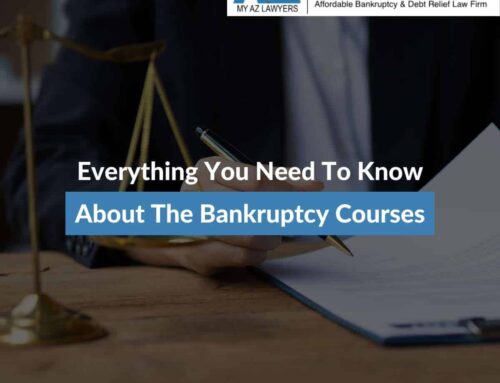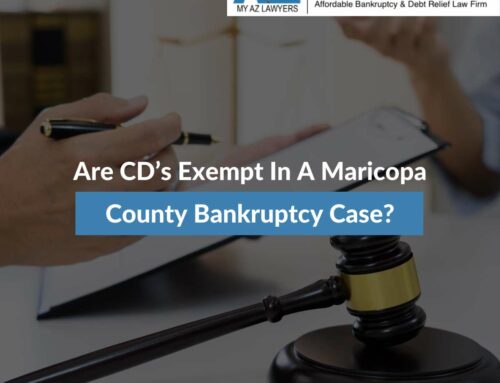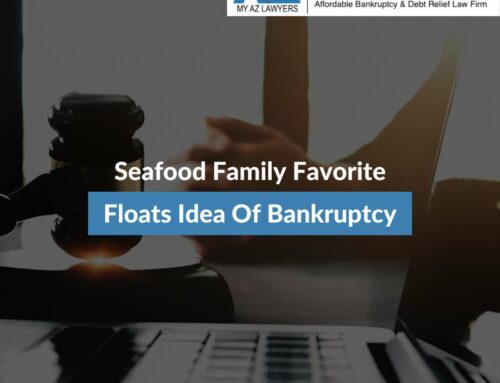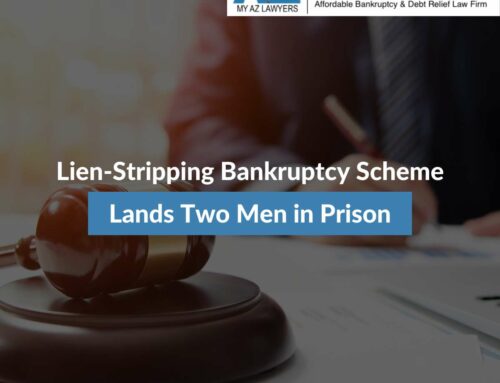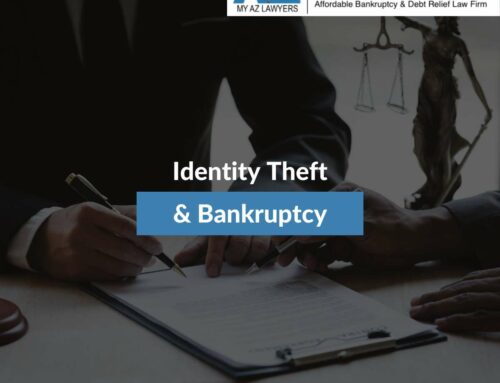Student Loan Debt & Bankruptcy
How To File For Bankruptcy When You Have Student Loan Debt
President Biden recently granted student debt relief packages to help reduce the student loan crisis in our country. However, for many, $10,000 (or $20,000) only puts a dent in what they owe. If you have student loans that you can never see yourself repaying, you may be wondering if you can discharge your educational debt through bankruptcy. Discharging student loans through bankruptcy is complicated, but so is bankruptcy in general. However, it could have a huge payoff that puts you on a better track for your financial future. Even if you plan on representing yourself, we recommend speaking to a Mesa bankruptcy lawyer about your situation before filing. For a free case evaluation with a member of our experienced bankruptcy team, call 480-448-9800.
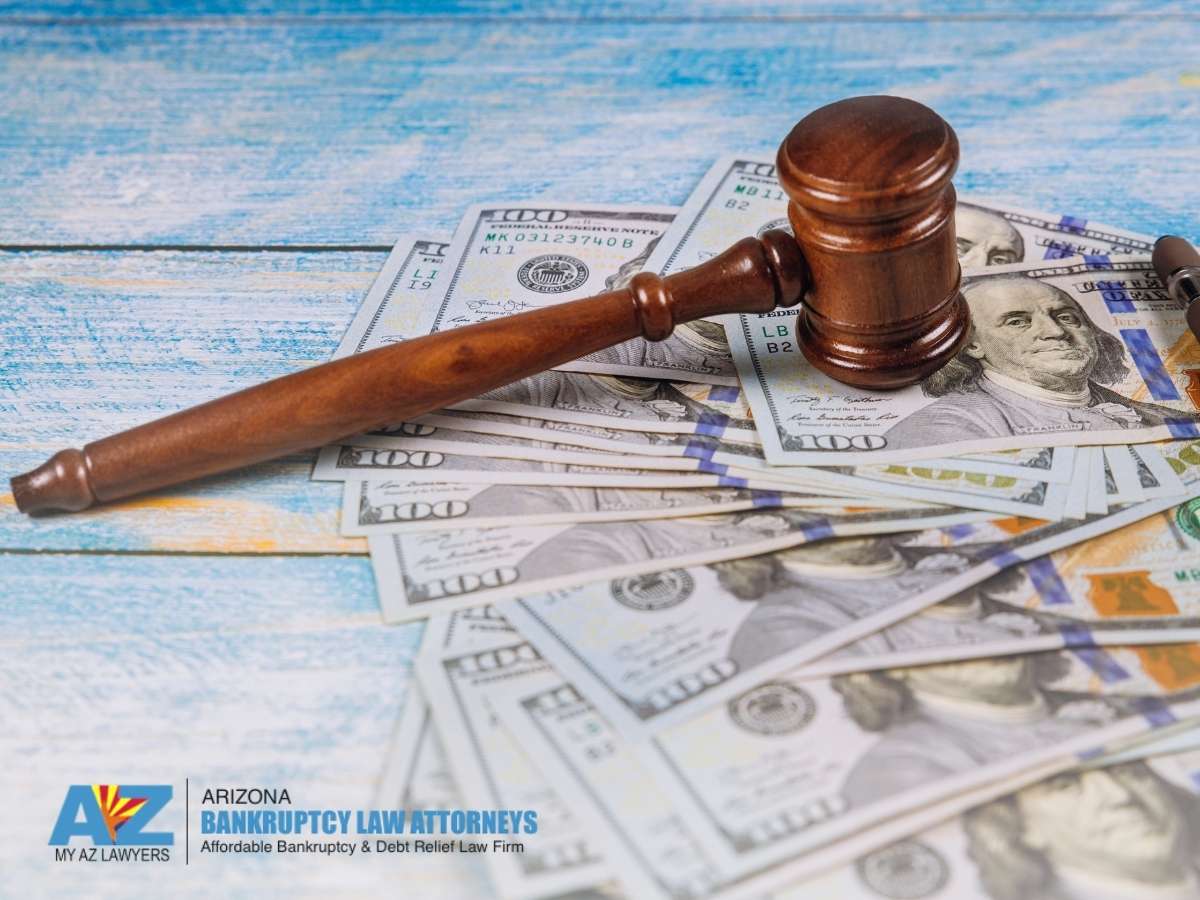
The Automatic Stay
When you file bankruptcy, a protection called the “automatic stay” immediately stops creditors from taking various collection actions against you. Many clients come to us when their vehicles are on the brink of repossession, or their homes are about to be foreclosed. Filing bankruptcy will enable the automatic stay, which will stop both of these events from occurring. The automatic stay will also stop lawsuits, including evictions that haven’t reached a certain stage. Another common reasons our clients are seeking out the automatic stay is because it can stop wage garnishments. There are certain limitations to this, and the garnishment may resume after your bankruptcy is completed if the attached debt isn’t paid off or discharged in the meantime.
If you file Chapter 7 bankruptcy in Arizona to stop a student loan wage garnishment, it will most likely resume after your case is discharged. While a Chapter 7 automatic stay stops all wage garnishments besides back child support wage garnishments, it is extremely rare to qualify for student loan discharge in Chapter 7 bankruptcy. If your loans aren’t eligible for discharge, you should try to work out a payment plan with your lender for after your case is discharged, otherwise the garnishment will resume.
Filing Chapter 13 may have a different effect on your student loans, depending on your income and debt structure. Debts are reorganized into a payment plan with debts paid off by level of importance. Your payment plan could pay off a significant chunk of your student loans, or even all of them. Your wage garnishment will not be active while your Chapter 13 bankruptcy is in good standing. For the most part, making your plan payments on time is all you have to do once your plan has been established and you have completed your credit counseling courses. Your wage garnishment may be reduced or eliminated after your bankruptcy, depending on how much is paid off. A Chapter 13 bankruptcy lasts 3 or 5 years.
The Brunner Test
The Brunner Test is the most common method of determining whether or not student loans are dischargeable in bankruptcy. You need to prove that paying your student loans would cause you undue financial hardship. You can find the case text regarding the Brunner test in In re Brunner. The Brunner test sets forth three factors that must show undue hardship for student loans (that are at least 5 years old) to be discharged in bankruptcy. They are:
- You won’t be able to maintain a minimal standard of living if forced to repay the loan
- There is evidence that your financial situation (hardship) is unlikely to change during the loan repayment period
- You made good-faith efforts to repay the loan
Proving undue hardship must be done through an adversary proceeding. This is a hearing in addition to the mandatory 341 Meeting of Creditors (and for Chapter 13 bankruptcies, the plan confirmation hearing) that all bankruptcy debtors must attend. An experienced bankruptcy attorney can help you find evidence and argue why paying your loans would cause you undue hardship. For your free consultation with one of our skilled Phoenix bankruptcy lawyers, call 480-448-9800.
Is It Worth Filing Bankruptcy If It Won’t Clear My Student Debt?
While you might succeed in discharging your student debt in bankruptcy, this isn’t possible for most debtors. If your only debt is student debt, you should review your circumstances with a bankruptcy attorney to estimate your chances of discharging your debt and let that guide your decision.
You could have several other debts besides your student debt and discharging them could help ease the burden of your student loan payments. Many people file bankruptcy because they are bogged down by unsecured debts like medical bills and credit cards. If you have significant balances with these types of lenders, this may leave you more disposable income, even if you have to continue paying your student loans. If you’ve ever experienced an eviction or a repossession, bankruptcy can also clear back rent and repossession deficiencies. However, bankruptcy won’t clear secured debts unless you surrender the asset. It also can’t clear domestic obligations like spousal maintenance and child support.
Some debtors specifically look to file Chapter 13 bankruptcy because they are about to lose their vehicles or homes. Filing a Chapter 13 bankruptcy can activate the automatic stay and stop the repossession or foreclosure process. The balance in arrears will be spread out over the course of the payment plan- 3 years if the debtor earns less than the state median income, 5 years if the debtor earns more. The debtor will also need to pay any remaining balance on the auto loan in full. Other secured loans must be paid in full in a Chapter 13 as well, with an exception for a primary residence home mortgage. If you’re at risk of losing an asset to repossession or foreclosure, Chapter 13 bankruptcy could help you whether or not it discharges your student loans.
Review Your Situation with an Experienced Arizona Bankruptcy Lawyer
Bankruptcy could be a powerful debt relief tool that could even help improve your overall credit. But there are many pitfalls to navigate along every step of the bankruptcy process. For example, you need to know which chapter(s) you qualify for, and if it’s both, which will provide you the most benefits. Then, your bankruptcy petition must be drafted using a litany of personal and financial documents- you can expect this petition to be at least 60 pages long. You will also need to defend against opposition from creditors and inquiries from your bankruptcy trustee. An experienced bankruptcy lawyer can help you identify which types of issues might arise in your case, and how to react if they do occur.
As Arizona Bankruptcy Lawyers, we understand just how difficult it can be to pay the up-front costs of filing bankruptcy. With creditors breathing down your neck and more of your income going towards things like interest, late fees, and wage garnishments, saving up all of your bankruptcy costs could seem infeasible. That’s why we offer flexible payment options, including a ZERO DOWN filing option for eligible Chapter 7 clients. Pay for your bankruptcy in affordable, 0% interest payments for up to 12 months after your petition is filed. Your timely payments can even help you rebuild your credit history with a positive start. To learn more, call 480-448-9800 to schedule your free consultation with one of our experienced bankruptcy lawyers today.
Mesa Bankruptcy Law Office
Mesa Bankruptcy Lawyers
4065 E University Dr #500
Mesa, AZ 85205
(480) 470-0005
Phoenix Bankruptcy Law Office
668 North 44th Street, Suite #300
Phoenix, AZ 85008
(480) 833-8000
Glendale Bankruptcy Law Office
My AZ Lawyers
20325 N. 51st Ave.
Suite #134
Glendale, AZ 85308
(623) 640-4945
Tucson Bankruptcy Law Office
My AZ Lawyers
2 East Congress St. Ste. 900
Tucson, AZ 85701
(520) 306-8729
Avondale Bankruptcy Law Office
My AZ Lawyers
12725 W. Indian School Rd.Suite E, #101
Avondale, AZ 85392
(623) 399-4222
Additional Information at:
Phoenix Bankruptcy Lawyer
Mesa Bankruptcy Lawyers
Phoenix DUI Lawyer
Chandler Bankruptcy Lawyer
Tempe Bankruptcy Lawyers
Vegas Zero Down Bankruptcy Attorney
Gilbert Bankruptcy Lawyers
Tucson Bankruptcy Lawyer
Arizona Zero Down DUI
Las Vegas Bankruptcy Lawyers
AZ Bankruptcy Lawyer


